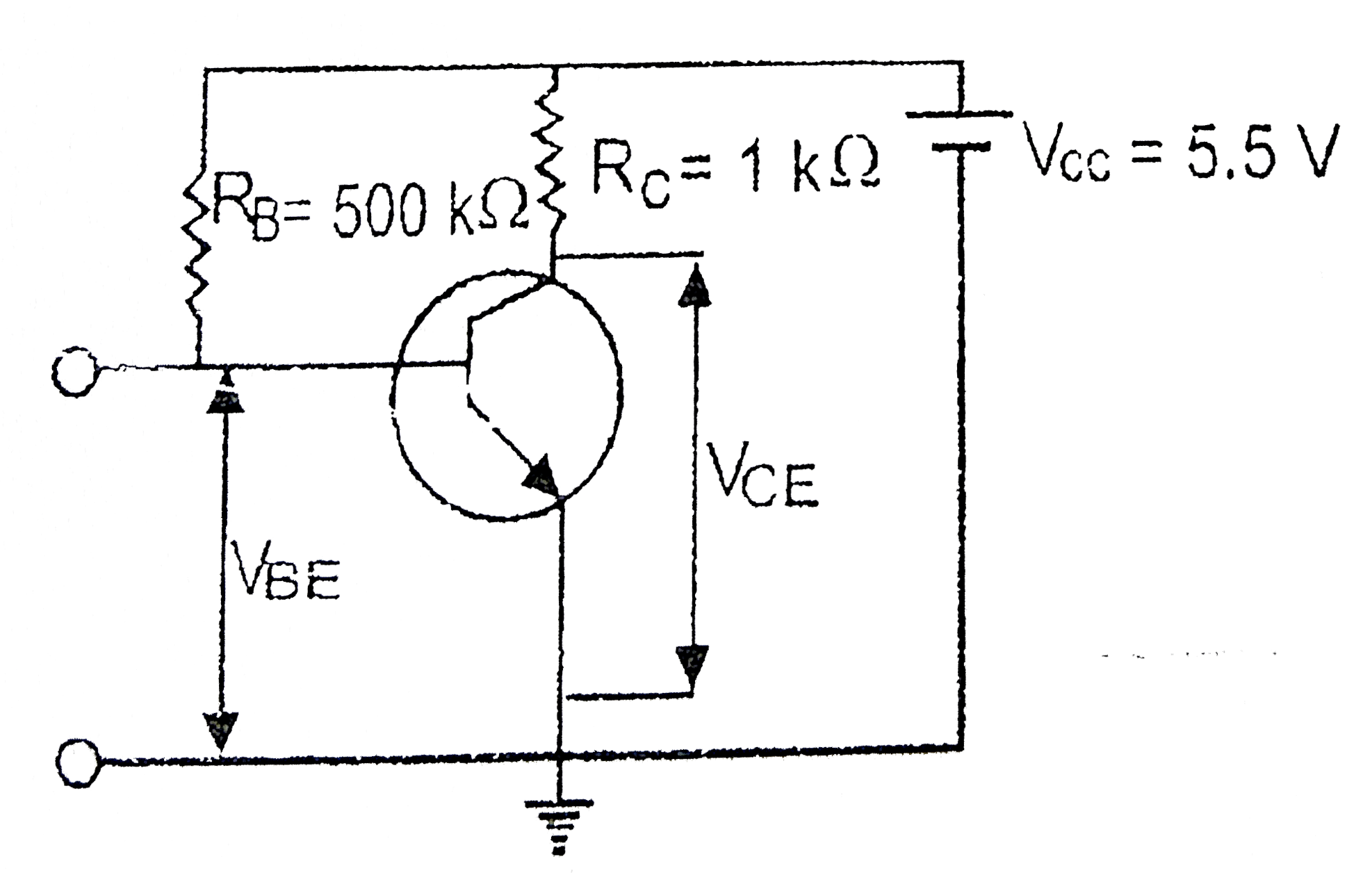In an n-p-n transistor , the base current is 100 μA and the collector current is
1.01 mA
10.1 mA
0.101 mA
0.0101 mA
The correct Answer is:B
Ib=100,μA,Ic=10mA,Ie=?
Ie=Ic+Ib=10+0.1=10.1mA
Topper's Solved these Questions
Similar Questions

(a) For given transistor circuit, the base current is 10μA and the collector current is 5.2 mA. Can this transistor circuit be used as an amplifier. Your answer must be supported with proper explanation.
(b). For a common emitter amplifier, current gain is 69. if the emitter current is 7 mA then calculate the base current and collector current.View SolutionIn the given circuit Fig. 5.11, the base current is 10μA and the collector current is 52 mA. Can this transistor be used as an amplifier ?
View Solution
Knowledge Check
- Question 1 - Select One
In a p-n-p transistor the emitter current is 10 mA and the collector current is 9 mA . Then the base current is
A19 mAB10 mAC9 mAD1 mA - Question 2 - Select One
In p-n-p transistor the base current is 1 mA and the collector current is 10 mA . The emitter current is
A9 mAB10 mAC11 mAD12 mA - Question 3 - Select One
For a common emitter configuration , the base current is 60μA and the collector current is 6 mA . The current gain of transistor is
A30B60C100D200
In an n-p-n transistor the base current is 1 mA if 90% of electons emitteed reach the collector then find the emitter current and collector current
View SolutionIf a change of 100μA in the base current of an n−p−n transistor in CE causes a change of 10mA in the collector current, the ac current gain of the transistor is
View SolutionIn an n-p-n transistor, the collector current is 10 mA. If 90% of the electrons emitted reach the collector, then the emitter current will be
View SolutionIn an n-p-n transistor, the collector current is always less than the emitter current because
View SolutionIn n-p-n transistor the emitter current will be equal to
View Solution

